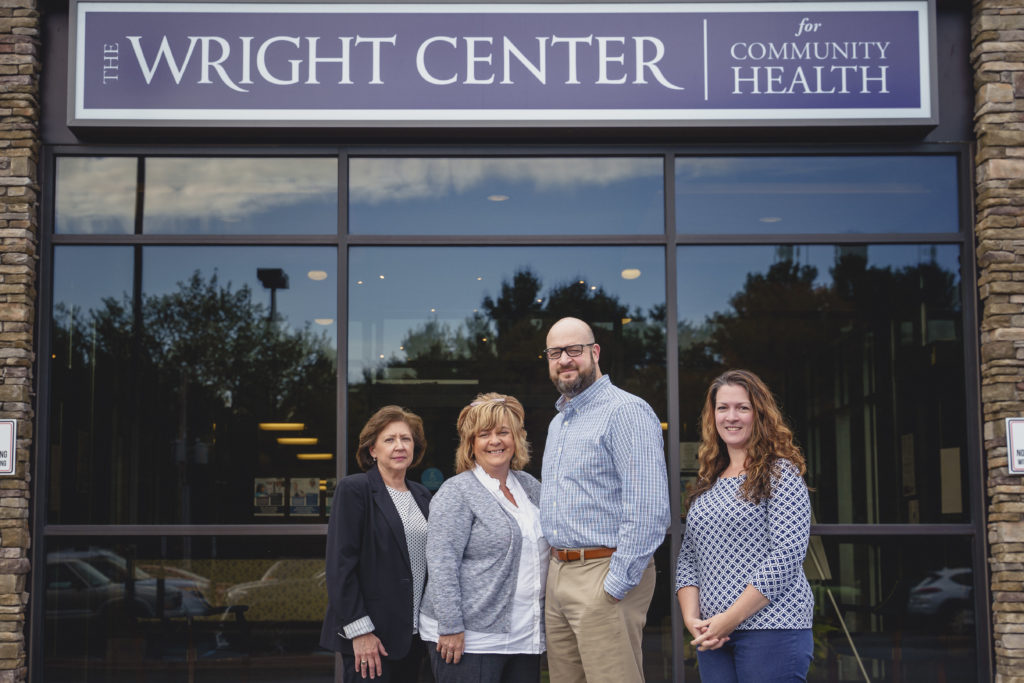The Board of Directors for The Wright Center for Community Health (TWCCH) conducted its annual meeting at the new integrated clinical, educational and administrative hub at 501 S. Washington Ave. in Scranton on Jan. 31, 2020. TWCCH was designated as a Federally Qualified Health Center Look-Alike by the U.S. Health Resources and Services Administration as of June 1, 2019; 76% of this board of directors is composed of a majority of patients and other users of TWCCH’s services, exceeding federal requirements. Carlon Preate, who chaired the board during its inaugural year as an FQHC Look-Alike, was honored for his service with a crystal gavel presented in touching tribute by incoming Chair Gerard Geoffroy. Mr. Preate now assumes the role of Immediate Past Chair.
Mr. Preate, a Clarks Summit resident and TWCCH patient, has more than 40 years of experience as a Certified Public Accountant in Northeast Pennsylvania. Prior to retirement, he supervised operations of a regional branch of Parente Beard LLC.
Mr. Geoffroy, a Jermyn resident, has been a patient of TWCCH for more than 20 years and is a fervent advocate of the patient’s voice at the governance table. His passion for health care was ignited while caring for his late wife during her illness, and he continues to advocate for patient education and quality health care delivery. He has worked in the fields of mental health and education for more than 40 years, retiring as an Adjunct Professor from the University of Scranton.
The Wright Center for Community Health also recently welcomed the following new directors to the board:
- Tracy Hunt, Assistant Vice President of In-Home Services at Allied Services Integrated Health System
- Deborah Kolsovsky, Executive Vice President and Managing Director of Institutional Advisory and Retirement Solutions at PNC Bank
- Ellen Walko, a retired Speech Therapist from Susquehanna Community School District
These recently appointed board members joined valued existing directors: William Waters, Ph.D. (Vice Chair); John Kearney (Treasurer); Mary Marrara (Secretary); James Gavin; Mary Ann Chindemi; LeeAnn M. Eschbach, Ph.D.; Patricia DeSouza; Susan Duckworth; Melissa Simrell; the Honorable Edward G. Staback; Kim Heritscko; Francis Stevens; Lewis Marcus; Jeffrey Metz; and Jody Cordaro.











